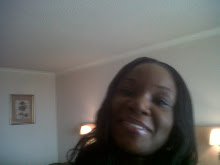It’s always a good idea to have any one of Paulo Coelho’s book within easy reach. It’s an even better idea to start the year reading one of them.
Quite by chance Paulo Coelho’s writings came up in a conversation I was having with an old friend in Dubai via BlackBerry messenger. Wisdom at last – we had learnt to use the free service of instant messaging from our BlackBerry as opposed to making those unfairly priced voice calls.
We marvelled at how our circle of friendships from two decades or so ago, had quite suddenly remerged and we were literally finding each other again. No, not on Facebook, but via the traditional phone call, the unexpected email, the longing and nostalgia to reconnect – “the universe is working its magic,” my friend told me. Hmm, that sounded like a Coelho phrase. So I asked my friend if she was a fan.
Of course, was the reply. We discussed our favourite book from the Coelho collection and my friend recommended The Fifth Mountain and Eleven Minutes as the next Coelho books to read. So, a dash to the bookshop ensued. Well, it was actually a dash to an Accra bookshop because good bookshops are few and far between here, but that is another story for another day.
The Fifth Mountain
So I am reading The Fifth Mountain. As I am reading the Fifth Mountain, I am constantly reminded of Nelson Mandela’s great speech: “Our Deepest Fear.” Why so? Well, here it is – all credits et al, of course, to Madiba:
'Our deepest fear is not that we are inadequate. Our deepest fear is that we are powerful beyond measure. It is our light, not our darkness, that most frightens us. We ask ourselves, who am I to be brilliant, gorgeous, talented, and fabulous? Actually, who are you not to be? You are a child of God. Your playing small doesn't serve the world. There's nothing enlightened about shrinking so that other people won't feel insecure around you. We are all meant to shine, as children do. We are born to make manifest the glory of God that is within us. It's not just in some of us, it's in everyone. And as we let our own light shine, we unconsciously give other people permission to do the same. As we are liberated from our own fear, our presence automatically liberates others.'
Nelson Mandela
I don’t want to ruin your enjoyment of the book by giving the plot away – I just want to whet your appetite for the core of the book’s message.
Elijah, the prophet. You, the prophet. Me, the prophet
So, the main character, a ‘prophet’ called Elijah, is called by God. God uses him to perform significant miracles and to commune with His people. God also wants to use him to draw His people towards Himself. As a young prophet, Elijah does this with great zeal but as time goes by he realises that this destiny of his also puts him in ever present danger and he wonders if he is a prophet at all, if indeed he has been delirious when he thought he communed with angels, and wonders also what this path, filled with disappointments and challenges, was really worth the trade off he chose, i.e. leaving his work as a successful carpenter to answer to God’s call.
Frustrated and at the end of his tether, Elijah wrestles with God. He pours out his frustrations, reminds God that he has lost love and suffered tremendously as a result of following Him, and although perhaps he admitted that he had sinned one too many times, he challenges God that God Himself has sinned against him by making him go through such difficult times even as a prophet. He would confess and repent of his sin to God, if the Almighty God did the same to him. Quid quo pro. We call it equals and move on
Blasphemy. Abomination.
No. Coelho demonstrates to his readers that it is exactly at this point of wrestling with God that we win. For if you don’t ever question your quest and your faith you in fact claim to be God for it is only Him, the All Knowing, All Seeing God Who knows today, yesterday and tomorrow at the same time can have the confidence and surety that ‘everything is going to be alright’ ALL the time.
Coelho’s call is to yet still pursue dreams and destiny, accepting the joy and the pain of the journey.
Then I thought of Madiba’s speech – our deepest fear is that we are inadequate.
The trials and the tribulations, the seemingly fleeting joy and the seemingly ever present pain and challenges.
Our deepest fear is that we are inadequate.
Better to just give up on your dream. Better to just forget that hope. Better to lose the thought that there is a potentially a glorious destiny for each individual .
Madiba’s cry, and I guess Coelho’s cry, is this:
Your playing small doesn't serve the world. There's nothing enlightened about shrinking so that other people won't feel insecure around you.
We are all meant to shine, as children do. We are born to make manifest the glory of God that is within us.
It's not just in some of us, it's in everyone.
And as we let our own light shine, we unconsciously give other people permission to do the same.
As we are liberated from our own fear, our presence automatically liberates others.
Thursday, 22 January 2009
Subscribe to:
Post Comments (Atom)

No comments:
Post a Comment